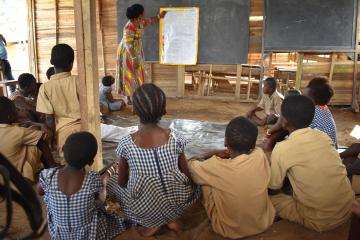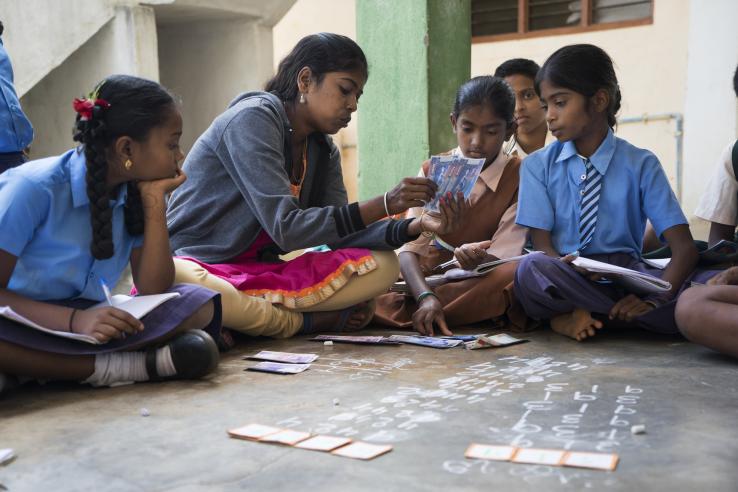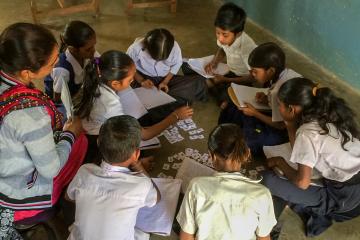
Foundational learning first: a joint statement on education in the time of COVID-19

More than one billion students have been out of school due to COVID-19. Data from past crises suggest large and lasting impacts on education, especially girls’ re-enrollment and learning loss.
This new reality is coming on the heels of what the world had already dubbed the “learning crisis” pre-pandemic, where millions of students were in school but not learning. COVID-19 is only further exacerbating this crisis.
For this reason, we at J-PAL, along with partners including Douglas B. Marshall Jr. Family Foundation, Innovations for Poverty Action, Pratham, Teaching at the Right Level Africa, and Young 1ove, have recently released a joint statement on the importance of focusing on foundational learning during and after the COVID-19 crisis. The message is simple: when schools reopen, governments should assess what students know, link these learning assessments to action, and focus on the foundations to ensure equitable learning for all.
The evidence supporting this statement is clear. Of the 250 education-focused randomized evaluations conducted by J-PAL affiliates, dozens of studies from India to Ghana to the United States show that using assessment and pedagogical innovations to tailor instruction to the learning needs of students can help children catch up and thrive.
One particularly effective approach, pioneered by the Indian NGO Pratham, has demonstrated consistent impacts through six randomized evaluations and reached over 60 million children in South Asia and Africa. Research also shows the promise of delivering tailored instruction programs through tutors, volunteers, government teachers, or through education technology platforms.
Business as usual is not enough to respond to the COVID-19 pandemic and its long term effects. Decades of evidence and experience suggest that linking assessment to tailored instruction can support foundational learning and help education systems build back better.
Now, more than ever, research, data, and practical experience should provide guidance on how to support learning as schools reopen and how to build more resilient education systems for future generations of children.



